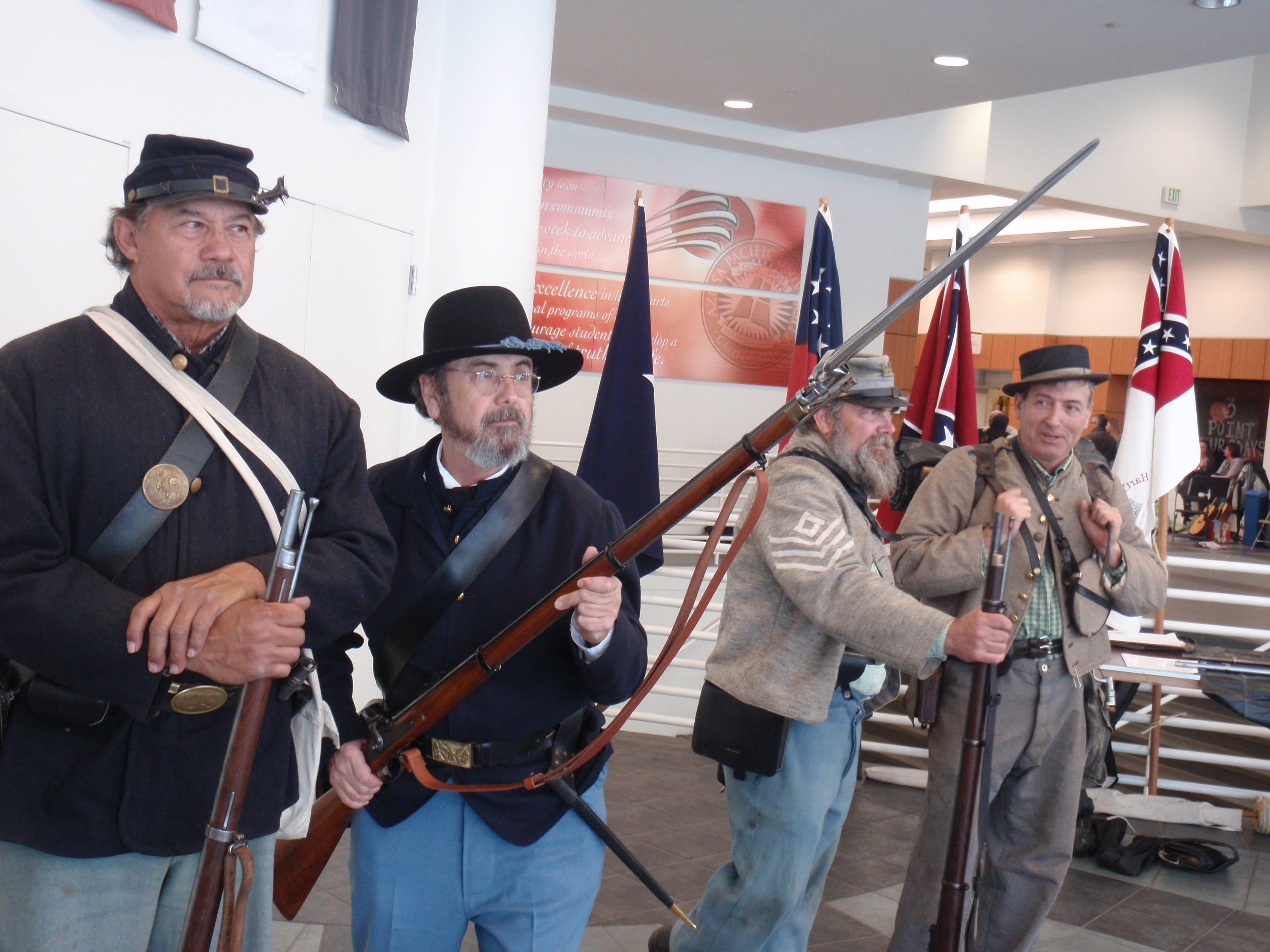
I previously mentioned some comments by John D. Billings as he told of his experiences in the Civil War. His tales appeared in Hard Tack and Coffee written all the way back in 1887. By the way, the book is only $0.99 in the Kindle version.
Look at the following description of the progress of technology during the war, all in three sentences:
The descendants of Paul Revere diverted a part of their yellow metal from the mills which rolled it into sheathing for government ships, to the founding of brass twelve-pounders, or Napoleons, as they were called; and many a Rebel was laid low by shrapnel or canister hurled through the muzzle of guns on which was plainly stamped “Revere Copper Co., Canton, Mass.” Plain smooth-bore Springfield muskets soon became Springfield rifles, and directly the process of rifling was applied to cannon of various calibres. Then, muzzle-loading rifles became breech-loading; and from a breech-loader for a single cartridge the capacity was increased, until some of the cavalry regiments that took the field in 1864 went equipped with Henry’s sixteen-shooters, a breech-loading rifle, which the Rebels said the Yanks loaded in the morning and fired all day.
For my own study and your enjoyment, let’s pull that paragraph apart:
The descendants of Paul Revere diverted a part of their yellow metal from the mills which rolled it into sheathing for government ships,
to the founding of brass twelve-pounders, or Napoleons, as they were called;
and many a Rebel was laid low by shrapnel or canister hurled through the muzzle of guns on which was plainly stamped “Revere Copper Co., Canton, Mass.”
Look at the smooth beauty of this flow, from muzzleloading muskets to repeating rifles:
Plain smooth-bore Springfield muskets soon became Springfield rifles,
and directly the process of rifling was applied to cannon of various calibres.
Then, muzzle-loading rifles became breech-loading;
and from a breech-loader for a single cartridge the capacity was increased,
until some of the cavalry regiments that took the field in 1864 went equipped with Henry’s sixteen-shooters, a breech-loading rifle,
which the Rebels said the Yanks loaded in the morning and fired all day.
Here is a description of the complexity of logistics for massive armies in the field, all in merely four sentences:
The system of designating the troops by corps badges was extended to the transportation, and every wagon was marked on the side of the canvas covering with the corps badge, perhaps eighteen inches in diameter, and of the appropriate color to designate the division to which it belonged. In addition to this, the number of its division, brigade, and the nature of its contents, whether rations, forage, clothing, or ammunition, — and, if the latter, the kind, whether artillery or musket, and the calibre, — were plainly stencilled in large letters on the cover. All this and much more went to indicate as perfect organization in the trains as in the army itself, and to these men, who were usually farthest from the fray, for whom few words of appreciation have been uttered by distinguished writers on the war, I gladly put on record my humble opinion that the country is as much indebted as for the work of the soldiers in line. They acted well their part, and all honor to them for it.
Again, I’ll pull that apart:
The system of designating the troops by corps badges was extended to the transportation,
and every wagon was marked on the side of the canvas covering with the corps badge, perhaps eighteen inches in diameter,
and of the appropriate color to designate the division to which it belonged.
In addition to this, the number of its division, brigade, and the nature of its contents,
whether rations, forage, clothing, or ammunition,
— and, if the latter, the kind, whether artillery or musket, and the calibre, —
were plainly stencilled in large letters on the cover.
All this and much more went to indicate as perfect organization in the trains as in the army itself,
and to these men,
who were usually farthest from the fray,
for whom few words of appreciation have been uttered by distinguished writers on the war,
I gladly put on record my humble opinion that the country is as much indebted as for the work of the soldiers in line.
They acted well their part, and all honor to them for it.
I hope that someday I can write half that well.